Beshalach 5782 – Hishtadlus & Parnasah
Sponsored Anonymously l’zchus Refuah Shleimah. Shiur presented in 5778.
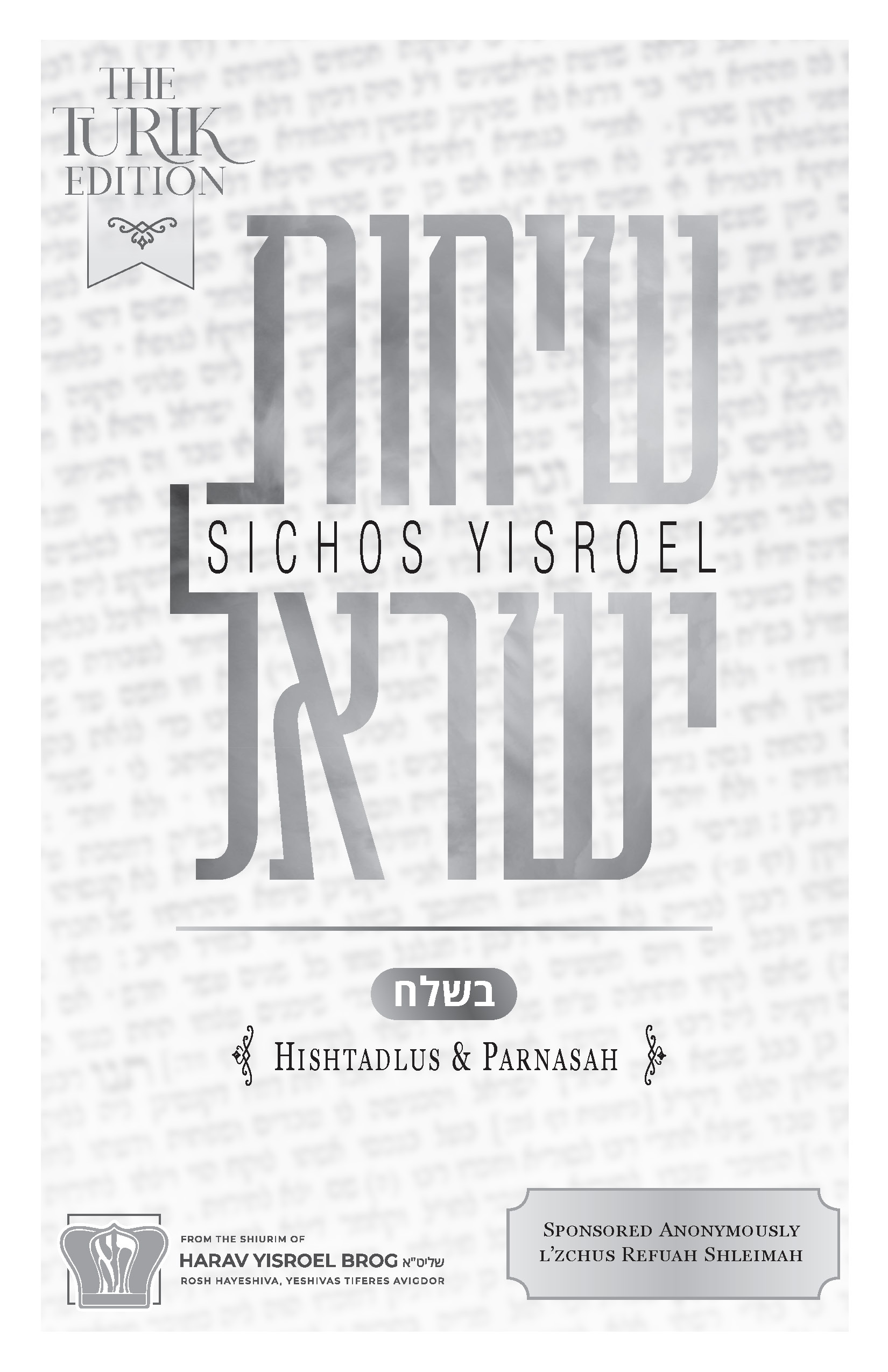
Sponsored Anonymously l’zchus Refuah Shleimah. Shiur presented in 5778.
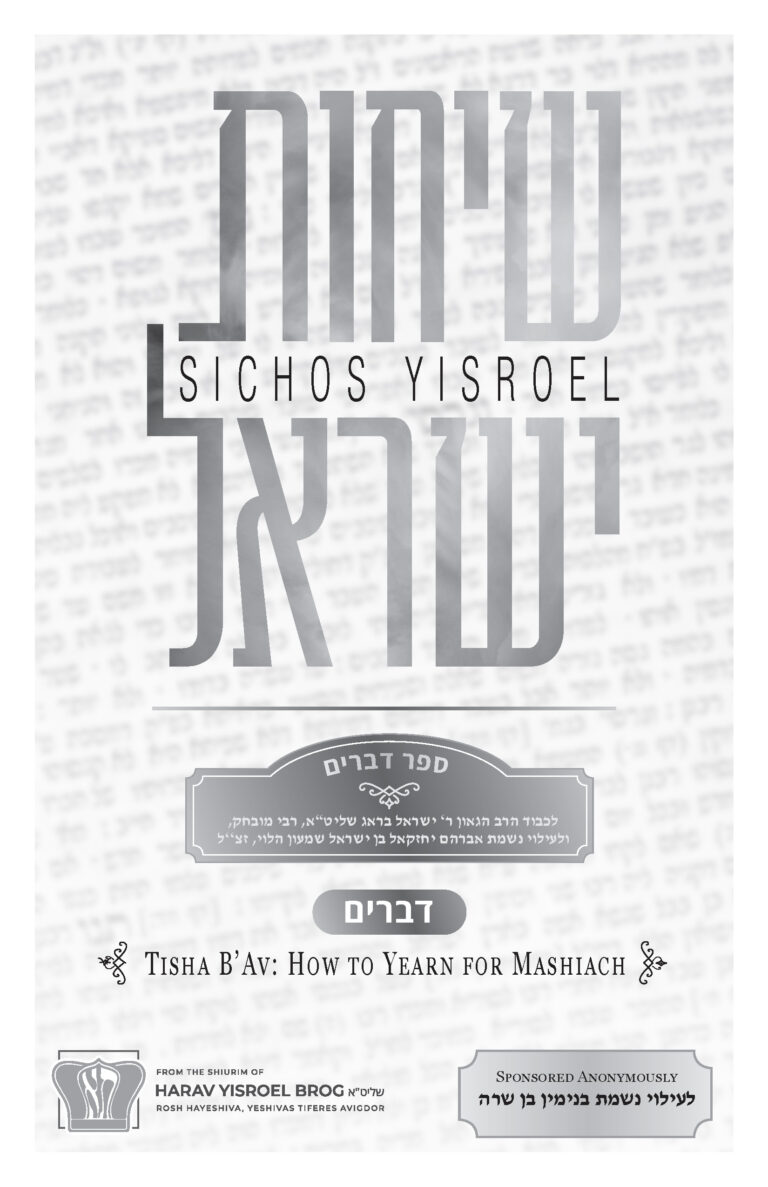
Tisha Ba’av is a day on which we have an appointed meeting, a moed, with Hakadosh Baruch Hu. Tisha Ba’av is a day of special tefillah, called kinnos. The way the moed is expressed is through the kinnos and by yearning for the Beis Hamikdash, and yearning to be taken out of galus. We have to analyze and understand that not all requests are uniform. Different requests require different formats. What is the format for asking for the geulah?
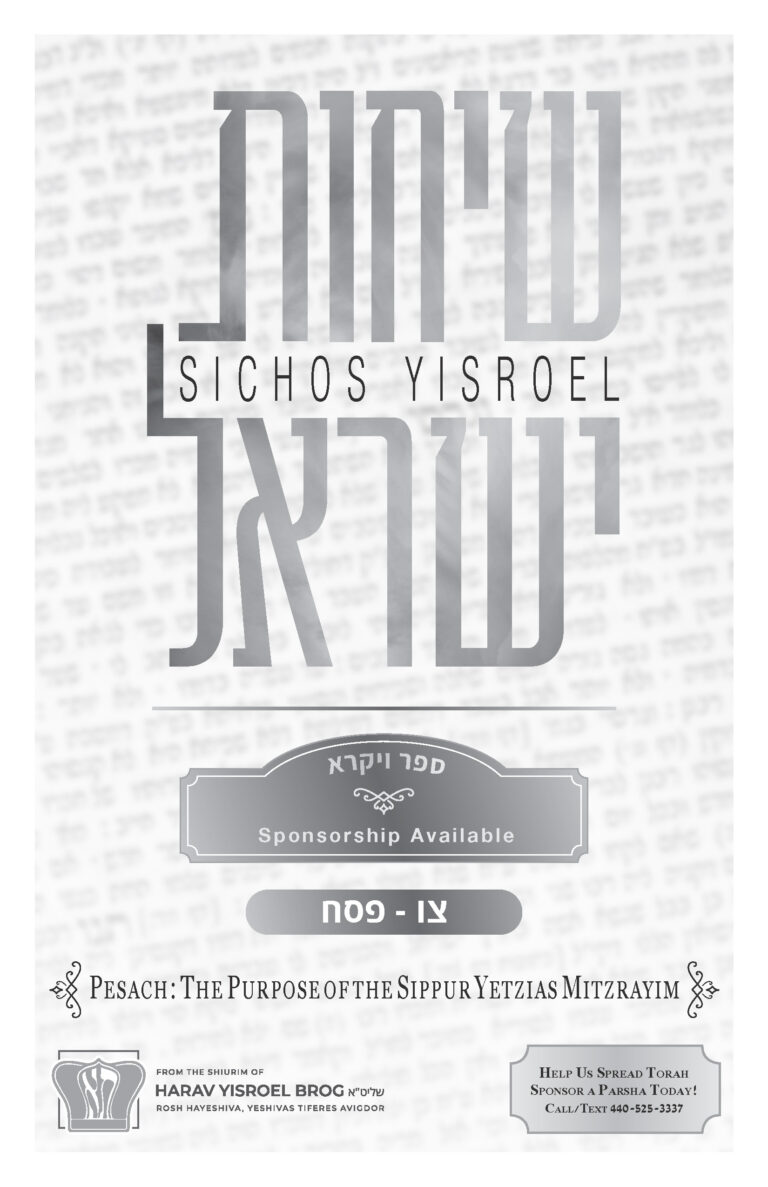
The big mitzvah on Pesach is the Mitzvah of the Sippur Yetzias Mitzrayim. We must know and understand what is the purpose of this night. Why do we make such a big fuss about repeating the same story of Yetzias Mitzrayim every single year? So if you are still not sure, listen carefully, because you’ve been doing it for so many years already and it’s a good idea to know why you are doing it.
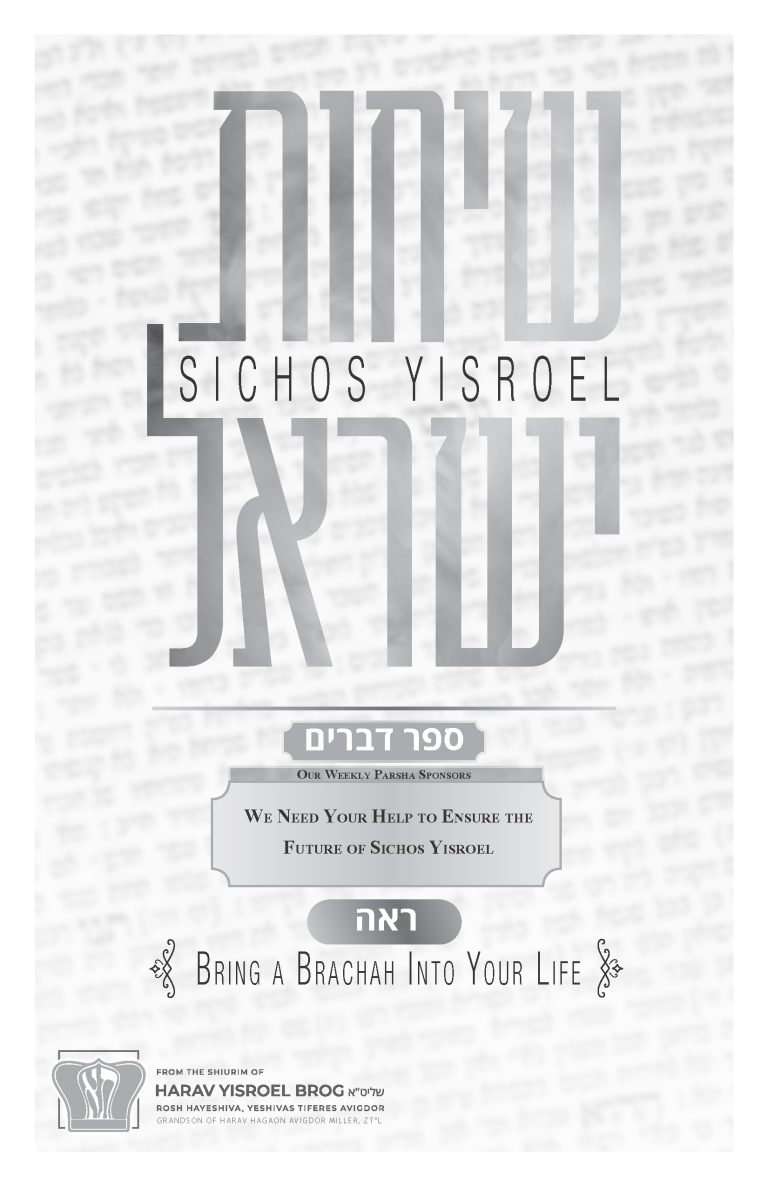
Moshe Rabbeinu is talking, and he’s says, “See, I am placing before you today a blessing and a curse…” Rashi translates “asher” to mean al manas, on condition. Rashi says it’s a brachah al manas asher tishmau. Now, you have to understand that Moshe Rabbeinu is talking about a specific event.

This week’s parshah is the parshah of zivugim. The gemara in Brachos (8a)says when a man married a woman, they would ask him the following: מָצָא או מוֹצֵא, as the passuk in Mishlei (18:22) says: מָצָא אישה מצא טוב – he who finds [motzo] a wife finds goodness, or [motzeh] מוֹצֵא, as the passuk in Koheles (7:26) says, מוֹצֵא אני מר ממות את האישה – I find [motzeh] the woman more bitter than death.[i] It could be the ultimate tov or it can be the ultimate ra.
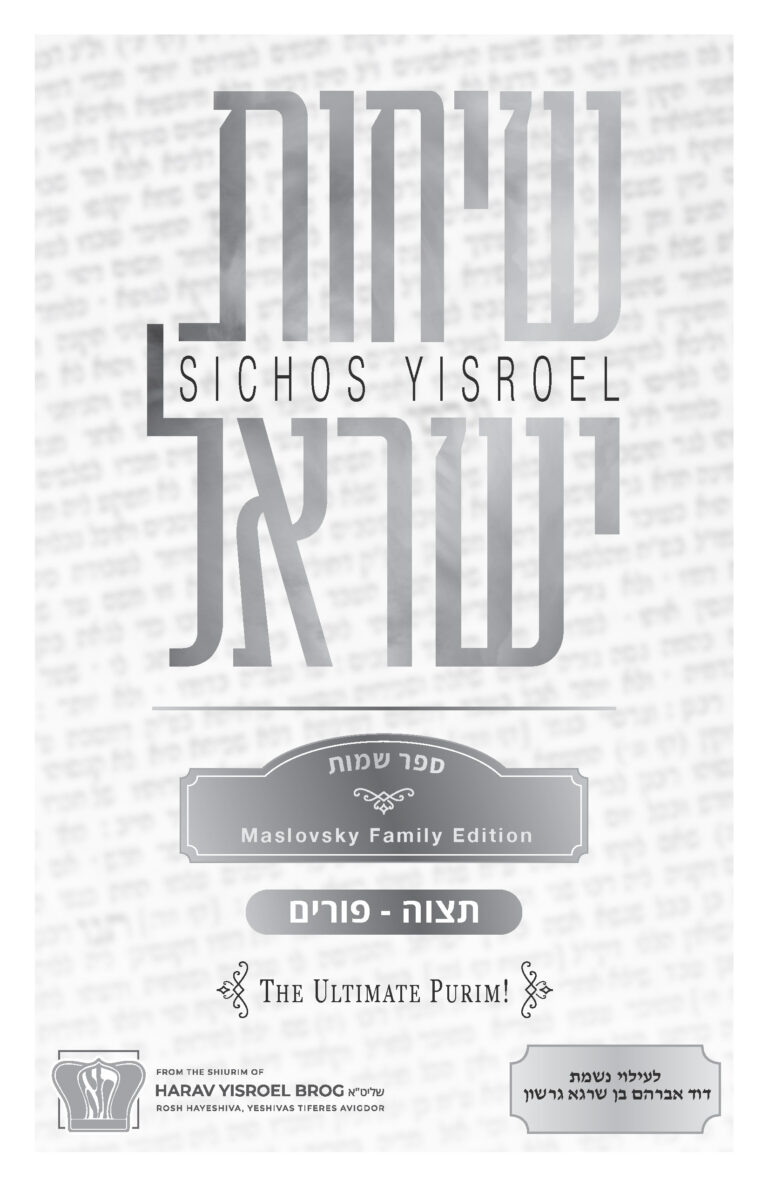
I’d like to share with you today a mindset that one should have regarding the mitzvos of Purim. There is a mitzvah of mishloach manos איש לרעהו on Purim that the Yidden were mekabel upon themselves and it’s something that we still do with a great pump. People spend tremendous amounts of energy and money on this mitzvah today, as we see in all the ads, magazines and newspapers. The problem, however, is…
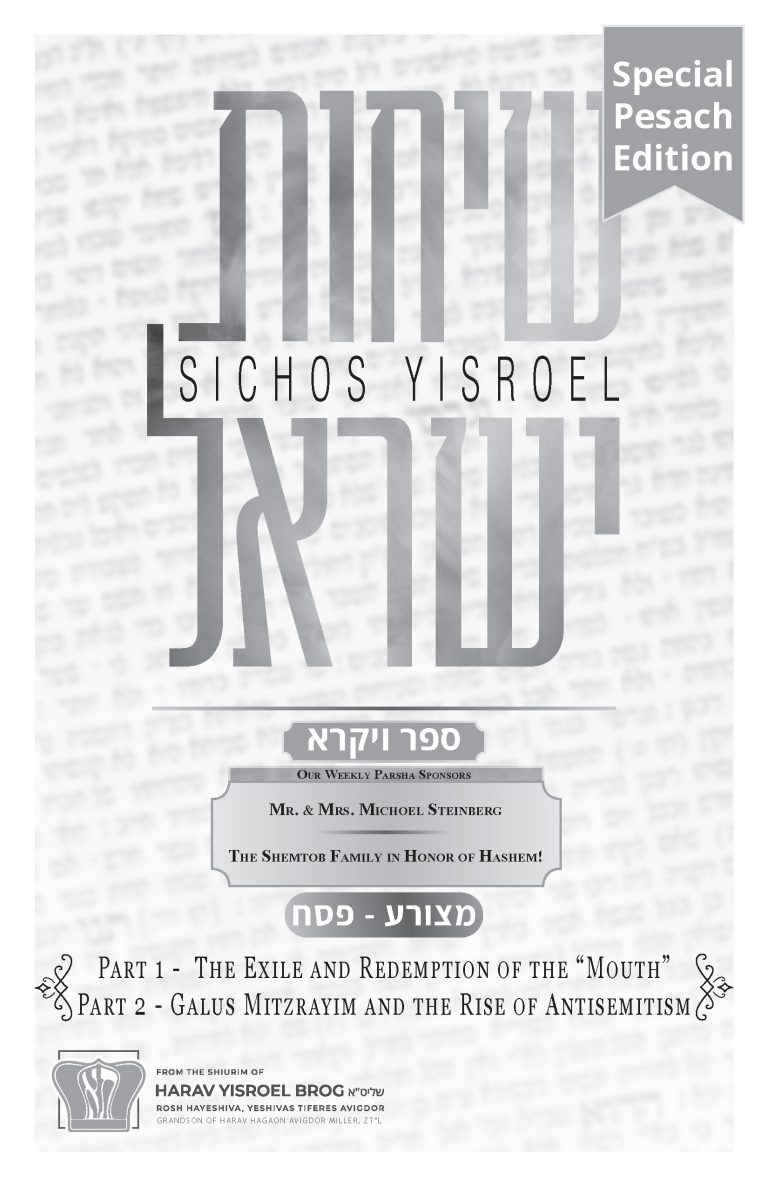
There is an interesting Ibn Ezra on the pasuk in our parsha: “This shall be the law for a metzora at the time of being purified, when he’s brought to the Kohen” (Vayikra 14:2). This is the law of the metzora and how he goes through his taharah ceremony…It’s a process. There’s a very interesting Ibn Ezra over here.